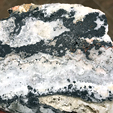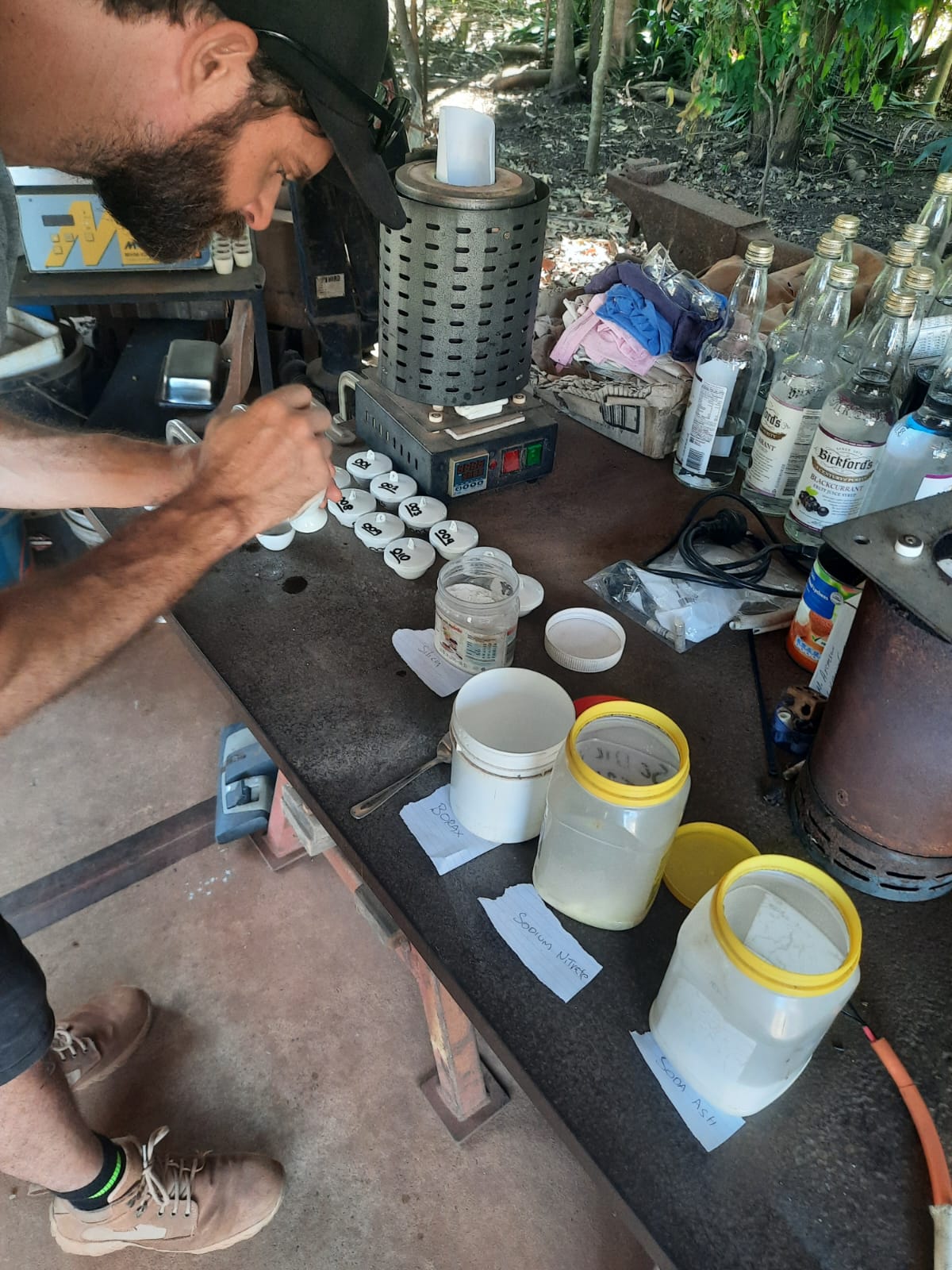All Articles
Legislative and Regulatory Update
September 2003 by Staff
• Small miners can join bonding pool in AlaskaFairbanks, Alaska (AP)—Under a new agreement between the state and federal government, small mine operators on federal claims in Alaska should be able to get required financial backing to guarantee cleanup of the land they disturb.
The agreement—signed between the Bureau of Land Management (BLM) and the Alaska Department of Natural Resources—will allow miners on federal claims to join a state-operated pool.
No bonding companies offer such agreements to small mines anymore, according to government officials and industry representatives.
Bonding problems for small miners have been simmering since a change in the federal rules adopted in late 2000 by the exiting Clinton administration. Before then, miners were exempt from the bonding requirement if they disturbed fewer than five acres at a time. The rule ended that exemption for federal claims. It also said a mining company’s assets would no longer qualify as financial assurance that an area would be restored.
Compounding the impact in Alaska, the rules also appeared to disqualify participation in the state’s bonding pool as a method of meeting the reclamation bond requirements.
That put about 135 miners, mostly placer operators, in a bind. Initially, they were supposed to obtain bonding by July 2001.
The Bush administration reviewed the Clinton rules that year but decided not to seek changes, according to Ken Greenberger of the BLM’s public affairs office in Washington. However, the administration did extend the bonding deadline while the state, BLM and miners talked about what could be done.
The situation looked grim for small miners on federal claims, said J.P. Tangen, an Anchorage mining law attorney.
“It’s a life or death thing,” he said of the access to the pool. “Bonding is otherwise not available.”
After “lengthy discussions,” the federal government decided that small miners on federal claims could use the state bond pool after all, said Ed Bovey, with the BLM office in Anchorage.
The agreement is the only one of its kind in the nation, Bovey said.
Tangen said the new interpretation “is not necessarily such a reach.”
“The regulations do contemplate bond pools,” he told the Fairbanks Daily News-Miner. “But the question was how those state bond pools were going to be implemented and whether the bond pool that the regulations contemplated could be reconciled with the Alaska state pool as it was constituted.”
The pool is open to small miners, mostly placer operators, who do not use chemicals in their process.
Miners can join the pool for a $150-per-acre initial fee paid to the state Division of Mining, Land and Water. The individual miners remain responsible for the reclamation work and liable for the expense, but the pool ensures that the land will be fixed even if it’s impossible to collect the cost from an operator.
• Comments needed for diesel particulate matter proposed rule
The Mine Safety and Health Administration (MSHA) has published proposed changes to diesel particulate matter (DPM) concentration limits for underground mines.
Like past proposals in this area, the proposed rule addresses recordkeeping, protective equipment, DPM plans, monitoring, and acceptable exposure limits.
The proposed rule can be found online by visiting www.msha.gov and clicking on “Current Rulemaking” on the right hand menu.
Comments must be received by October 14, 2003. Comments must be clearly identified as such and may be emailed to comments@msha.gov, faxed to (202) 693-9441, or sent to:
MSHA
Office of Standards, Regulations, and Variances
1100 Wilson Blvd., Room 2313
Arlington, VA 22209-3939
For further information, contact Marvin W. Nichols Jr. at the above address, phone (202) 693-9440, or email Nichols-Marvin@msha.gov
• Administration asks Supreme Court to review wilderness ruling
Washington, DC (AP)—The current administration has asked the Supreme Court to prevent environmental groups from suing to force the government to protect the wilderness potential of parts of Utah’s backcountry.
The Southern Utah Wilderness Alliance and other environmental groups sued the government in 1999, arguing the BLM failed to meet a congressional mandate to preserve the pristine qualities of areas being considered for wilderness designation.
A divided 10th US Circuit Court of Appeals ruled the environmentalists could press their lawsuit, saying the BLM has a statutory obligation to protect wilderness study areas, and courts could intervene if the BLM fails to meet the task.
The Bush administration petitioned the Supreme Court for a review, arguing that daily activities such as managing federal land cannot be challenged in court. Only final administrative actions are subject to a judge’s review, the brief said.
Paul Turcke, an attorney representing the Blue Ribbon Coalition and Utah Shared Access Alliance, a pair of recreation groups that have also asked the Supreme Court to intervene, said SUWA’s attempt is a “backdoor method” to push the BLM further than they have decided is warranted.
The 9th U.S. Circuit Court of Appeals in San Francisco came to a similar conclusion earlier this year, raising the stakes for a Supreme Court review. More than 90 percent of the federal lands are in the 9th and 10th Circuits, and the two decisions could “permit courts to intrude into a wide array of programs,” the government said in its appeal.
The court is expected to decide this fall whether to hear the case. Oral arguments could be heard early next year.
• Bush selects Utah Governor as next EPA chief
Utah Governor Mike Leavitt has been nominated by President Bush to head the Environmental Protection Agency. His appointment to EPA chief would likely mean more state and local control.
As governor, Leavitt has long championed the notion of “devolution” of powers from the federal government to state and local governments. He has criticized both Republican and Democratic lawmakers for keeping power in Washington.
Under Leavitt’s leadership, Utah had filed suit to prevent the BLM from designating areas as wilderness beyond the congressionally mandated deadline of 1991. Utah had also filed suit to obtain control to rights of way under Revised Statute 2477. Leavitt and Secretary of the Interior Gale Norton signed an agreement on both matters earlier this year.
Bush praised Leavitt’s environmental record and said Leavitt “respects the ability of state and local governments” and “rejects the old ways of command and control from above.”
Leavitt calls his environmental philosophy “enlibra,” a Latin word he defined as to move towards balance.
“To me, there is an inherent human responsibility to care for the earth,” he said. “But there’s also an economic imperative that we’re dealing with in a global economy to do it less expensively.”
Leavitt’s nomination was cheered by Republican lawmakers and business leaders, and criticized by environmentalists and Democrats.
His confirmation hearings will likely be held in September.

Mining Stock Quotes and Mineral & Metal Prices
Gold Circle (Midas) Gold District
 Many prospectors thought that Nevada was all prospected out following all the rich discoveries of the 1860s and 1870s, and what was there to be found had already been found.
Many prospectors thought that Nevada was all prospected out following all the rich discoveries of the 1860s and 1870s, and what was there to be found had already been found.
The Bawl Mill
• Here we go round Obamacare...
• Care packages for al-Qaeda?
Utility Agrees to Remove Four Klamath River Dams
PacificCorp, which owns four hydroelectric dams on the Klamath River, has agreed to terms for their removal, a key milestone in efforts to restore what was once the third biggest salmon run on the West Coast and end decades of battles over scarce water.
The Investigation
Six sticks of dynamite had been found in the glove compartment of an abandoned car back in 1972. This started an investigation by every level of law enforcement, including the federal government, in the Silver City, New Mexico area.
Forest Service Pays Miners $245K for Unlawful Destruction of Mine
In July 2008, the Marstons filed an administrative claim alleging that when US Forest Service employees or their agents entered upon the Marstons’ claims and bulldozed the shaft and trenches, they engaged in unlawful trespass, negligently destroyed property, and committed a nuisance...
Subscription Required:
The Bawl Mill
• Klondike Gold
• State Rivers Closed to Prospecting in Washington
• A Guide to Overlooked Gold Deposits—Part I
• The Montezuma Quadrangle, Summit County, Colorado
• Looking for Gold in British Columbia
• The Reynolds (Star) Gold Mine
• Picks & Pans: Sniping for Low Stream Gold
• Company Notes
• Why Do We Do The Things We Do?
• Gallium and Germanium in Utah
• Melman on Gold & Silver
• Mining Stock Quotes and Mineral & Metal Prices
Free:









